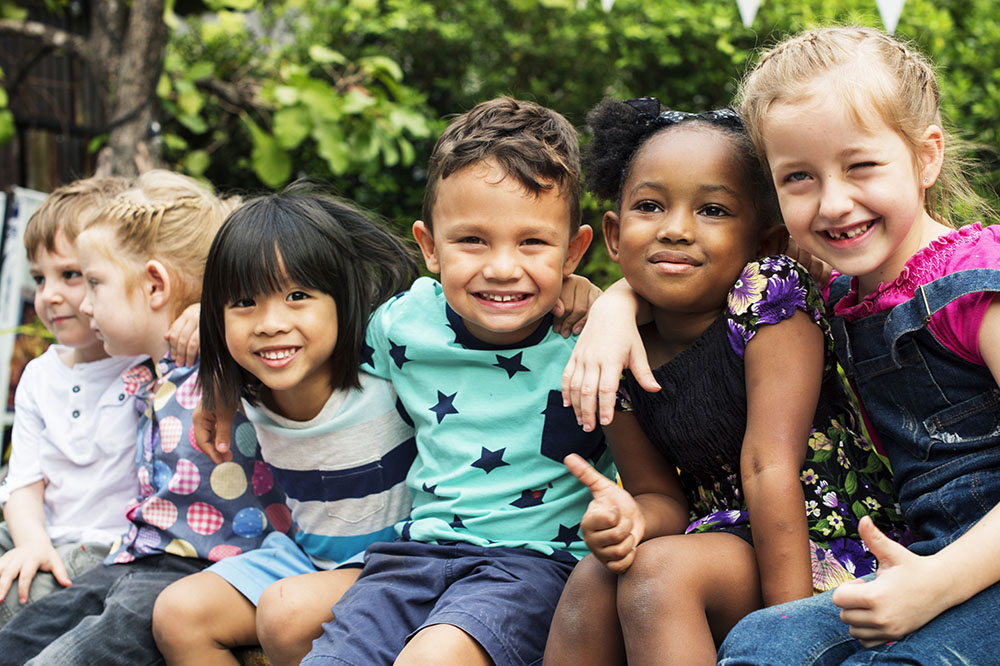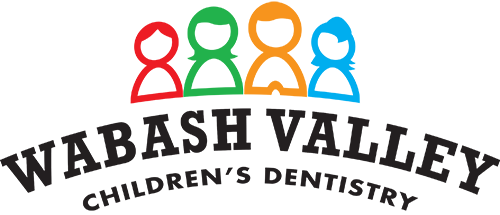
For parents, it is certainly possible to pay less attention to the importance of your child’s oral health at an early stage, especially if they have yet to lose their baby teeth or while their permanent teeth are beginning to come in. The knowledge that your child will have a new set of teeth that will be growing in may cause you to overlook the care that is needed prior to that point. However, your child’s dental health is important, even as a baby. Babies with unhealthy teeth can have increased problems with their teeth later on such as difficulties with speaking and chewing.
Your little one’s teeth change dramatically during their early years prior to when their permanent teeth become completely established. It can be difficult to keep up with proper care during each stage of their teeth’s growth. However, cavities and other issues with baby teeth can be equally as damaging as cavities and other issues in their permanent teeth. We will provide you with the information you need to know to avoid a serious issue with your child’s teeth early on.
Dental Care for Children Ages 0-3
Teething Tips
More often than not, an infant’s first tooth will appear no earlier than six to seven months after they are born. As they are teething, the gums around their emerging teeth may be sore, swollen, and tender. There are several ways to reduce the effects of this soreness, some of which include:
- Giving your baby cold items such as a damp washcloth or a toothbrush to gently chew on.
- Gently rubbing your baby’s gums with one of your fingers.
- Letting your baby use teething rings that have been chilled.
- You may also wish to talk to your doctor or dentist about giving your baby Tylenol or Ibuprofen if the aforementioned suggestions don’t adequately alleviate the paint.
Brushing Your Baby’s Teeth
Ideally, you should start brushing your baby’s first teeth as soon as they begin to appear. It is important that when selecting a toothbrush, you look for a toothbrush that has soft bristles and a small head. When you are brushing your child’s teeth, use a minimal amount of low-fluoride or non-fluoridated toothpaste that is the size of a grain of rice. Once they turn three or are able to spit excess toothpaste out, increase to a pea-size amount of the fluoridated toothpaste. We recommend brushing twice daily for the best oral care at this age.
When Should I Take My Baby to the Dentist?
When your child’s first tooth erupts, usually around the age of 1, you should schedule the first appointment, even if their first tooth hasn’t come in. Irrespective of the condition of your child’s teeth, they should see a children’s dentist between age one and two. Additionally, you should schedule a dental exam if you notice any type of discoloration or decay, such as dark spots or pitting of the teeth. After your child’s dental exam, the dentist may provide instructions on tooth care, information regarding teething concerns, discuss thumb habits, and review the growth and development of your child’s teeth.
Building Good Dental Habits
Infant and toddler’s dental health starts with brushing and extends to habits such as proper nutrition, thumb sucking, and proper bedtime routines. Some habits to think about are:
- Some of the items that we mentioned before, suchs as limiting your child’s sugar intake while enouraging them to drink water, are excellent habits for your child to develop during this age period.
- Prevent misalignment of teeth from pacifier, thumb, or finger sucking. By age 2, children are advised to stop using pacifiers. By age 4, finger sucking should cease. Many children are able to stop on their own, however, some require positive enforcement and help.
Dental Guidelines for Children Ages 3-6
By age 3, your child will most likely have all of their first baby teeth. Most children have their first permanent tooth by age 6 or 7. These years are extremely important for maintaining healthy dentals habits.
Tooth Brushing for Young Children
Once your child is old enough to hold their own toothbrush, they can begin brushing their own teeth. They should be assisted with brushing by an adult at this stage at least one time a day. Children during this age period can continue to use low-flouride children’s toothpaste along with a soft bristle toothbrush. Brushing two times daily is as essential as ever to positive dental hygiene, with brushing prior to sleep especially important.
Healthy Habits for Good Oral Health
Like with toddlers and infants, it is extremely important to limit sugar intake during this period as much as possible as well as preventing any tooth misalignment and accidents. Some good habits to think about include:
- Make sure that your child has the proper type of sports gear. If your child participates in organized sports during these years, it is important to use proper mouth guard protection to limit or prevent tooth-related accidents while participating in sports.
- Encourage your child to eat healthy snacks and increase water intake, rather than sports drinks, sodas, and juices, all of which contain high amounts of sugar.
- By this age, your child likely has stopped using their pacifier and no longer sucks his or her thumbs or fingers. However, during this period if they have not, they should stop to prevent tooth misalignment.
Dental Best Practices for Children 6-12
Teeth during this age range are made up the teeth that your child will use for the rest of their life, so dental hygiene is very important during this stage as their permanent teeth begin to erupt.
The Eruption of Permanent Teeth
Beginning at age 6 or 7, a child’s baby teeth commonly fall out and begin to be replaced by permanent teeth. This process will continue, as your child loses baby teeth until all of their permanent teeth come in around age 12. More often than not, when a child begins to lose their baby teeth, the cycle of losing/erupting new teeth will continue for roughly four teeth every six months. Flossing teeth at night is a great habit to begin when a child’s permanent teeth start to come in. It is likely that children will need assistance flossing until they develop the ability to do it independently.
Brushing of Teeth for Ages 6-8
During this stage, it is beneficial for children to not yet begin brushing on their own without the assistance of a parent. It is important during this stage that a parent or guardian should teach and encourage proper brushing techniques and make sure that their child is brushing correctly for two minutes per day. The recommended amount of fluoride during this period for toothpaste is between 1350ppm and 1500ppm, which can be found in the ingredient information on the box.
Brushing of Teeth for Ages 9-12
During this stage, children are old enough to start brushing their teeth on their own with supervision as necessary for the fully recommended 2 minutes twice per day. At this stage, your child may safely use adult toothpaste.
Lifelong Oral Hygiene Habits
As a child receives their permanent teeth, it is important to encourage good dental habits for the future. Good oral hygiene habits to keep in mind during this stage and throughout adulthood include:
- Drinking water after eating and throughout the day.
- Brushing teeth twice daily, including once before bed, and flossing at least once per day.
- Brushing your tongue gently when brushing your teeth.
- Having sugary and acidic food and drinks on a limited basis.
- Scheduling dentist appointments regularly, typically every six months.
Schedule a Dental Appointment With Wabash Valley Children’s Dentistry
If you have a new child or are looking for a new children’s dentist, Wabash Valley Children’s Dentistry will make your child’s oral health a priority. Call us today 812-234-5437 to schedule an appointment.
